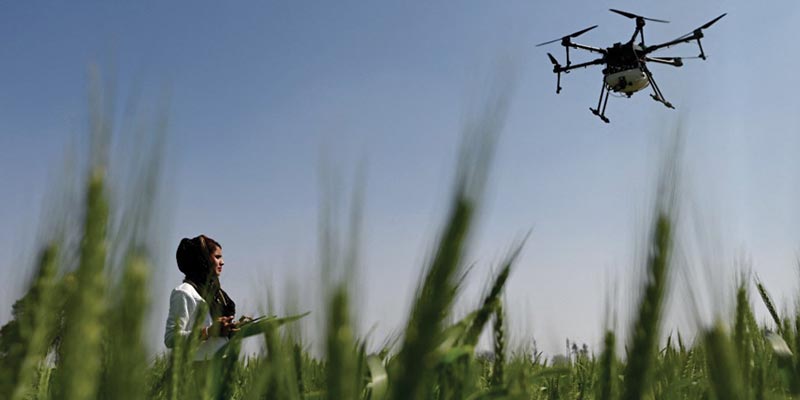- India
- Sep 18
- Kevin Savio Antony
What is precision farming?
In order to give a significant boost to precision farming, the Centre is planning an investment of Rs 6,000 crore.
What is precision farming?
• Precision farming, also known as precision agriculture, is an advanced agricultural practice that leverages modern technologies such as GPS, sensors, data analytics, drones, and remote sensing to monitor and manage crop production with high accuracy.
• The concept revolves around the process of observing, measuring, and responding to various inter- and intra-field variability inputs for modern agriculture.
• This modern agricultural approach incorporates technologies such as the Internet of Things (IoT), Artificial Intelligence (AI), drones, and data analytics to optimise resource use and reduce environmental impacts.
• The primary goal is to optimise the use of resources like water, fertilizers, and pesticides based on specific site conditions to maximise yield, minimise waste, and reduce environmental impact.
Advantages:
• Increased Productivity: By analysing field variability, farmers can tailor inputs to meet the specific needs of their crops, leading to enhanced yield and operational efficiency.
• Resource Optimisation: Ensures precise use of water, fertilizers, and pesticides, reducing waste and lowering production costs.
• Environmental Benefits: Minimises the use of chemicals, thereby reducing soil and water contamination and promoting sustainable agricultural practices.
• Risk Management: Real-time data collection and analysis help farmers make informed decisions, mitigating risks related to weather fluctuations and crop diseases.
Challenges:
• High Initial Cost: Significant investment in technology and infrastructure can be a barrier, especially for small-scale farmers.
• Technical Expertise: Requires training for farmers to effectively use precision tools, interpret data, and apply findings to agricultural practices.
• Digital Divide: Limited access to reliable internet in rural areas hinders the widespread adoption of precision farming.
• Data Management: Handling and interpreting large volumes of data demands specialised software and skills, which may not be available to all farmers.
(The author is a trainer for Civil Services aspirants.)

